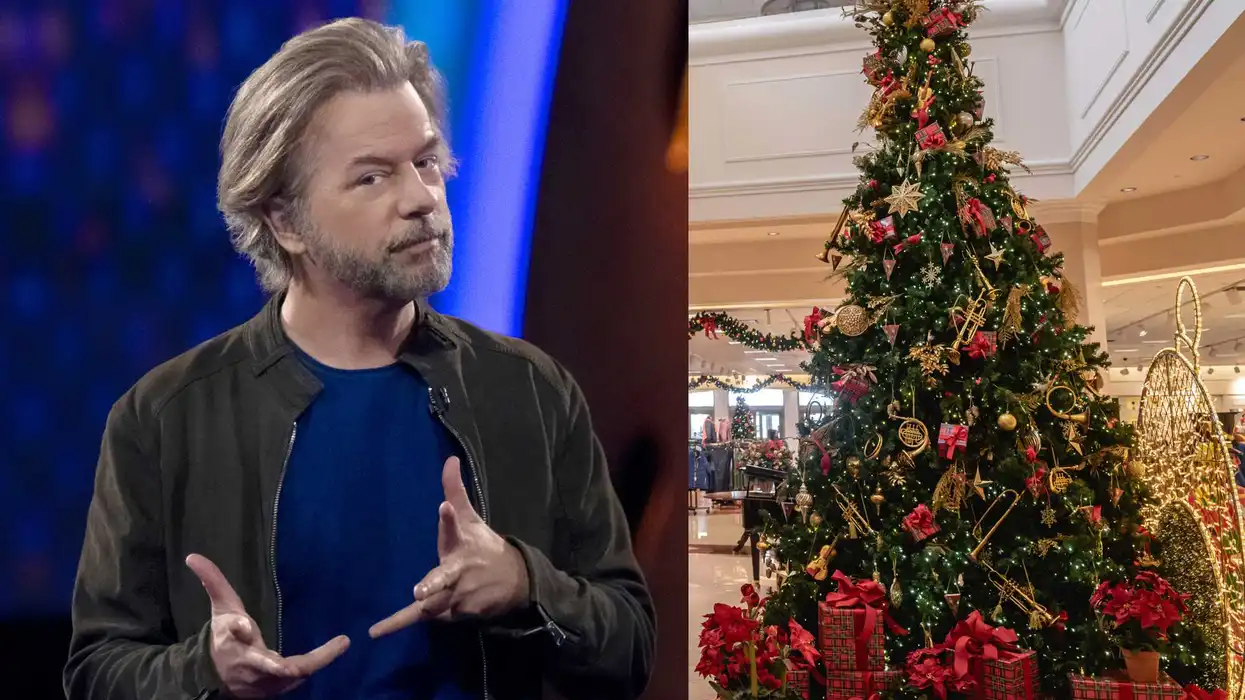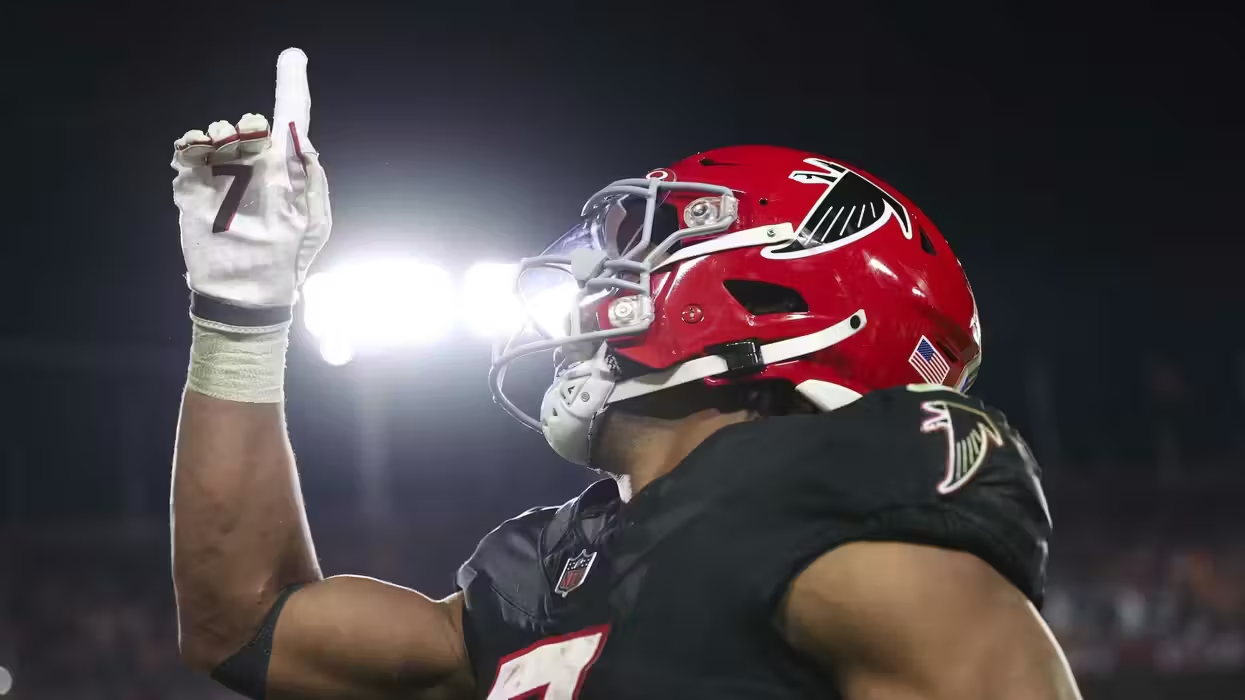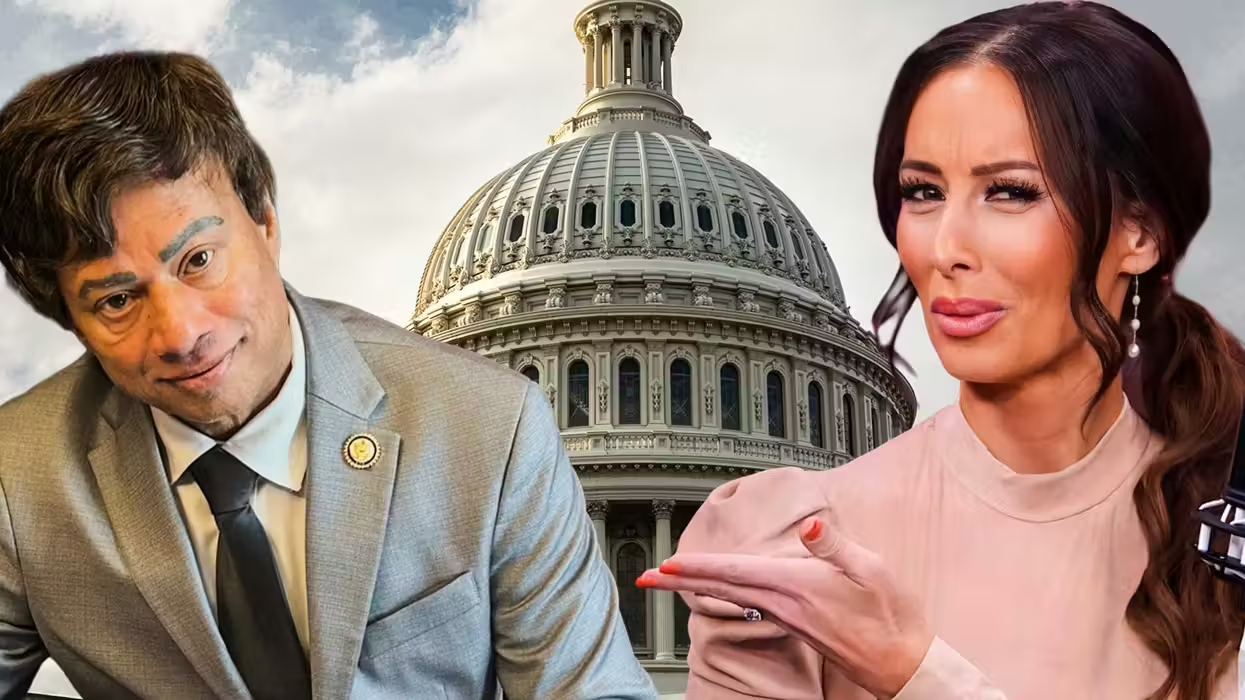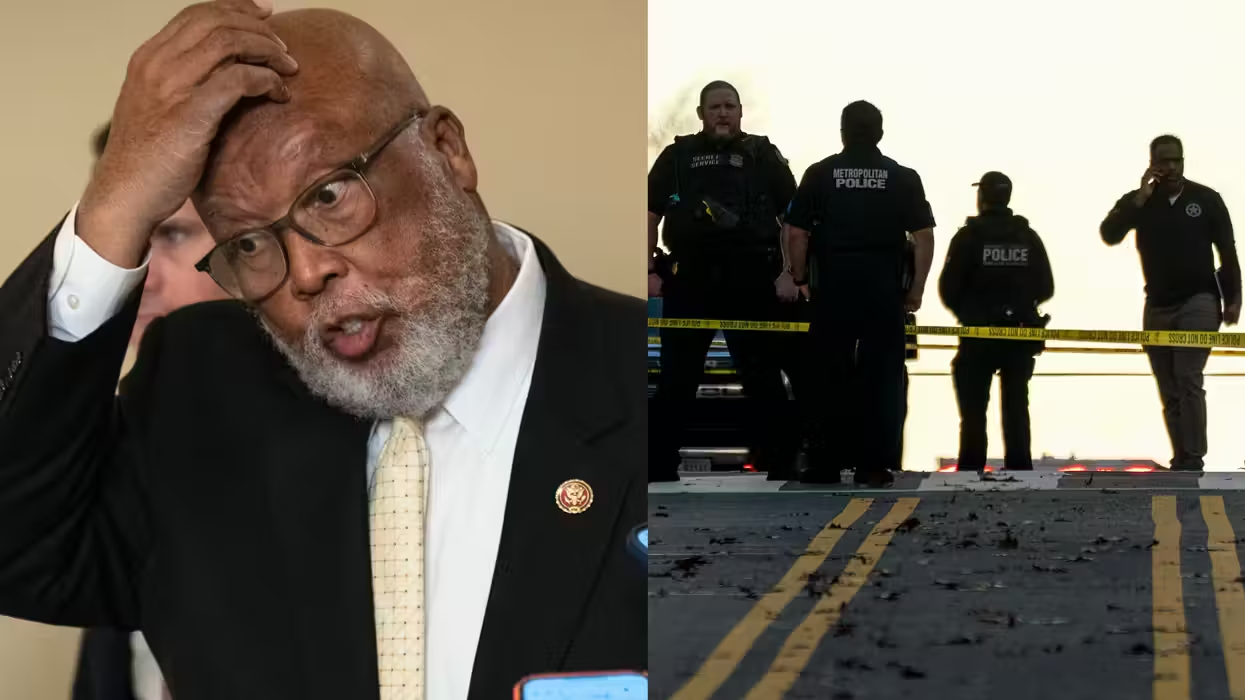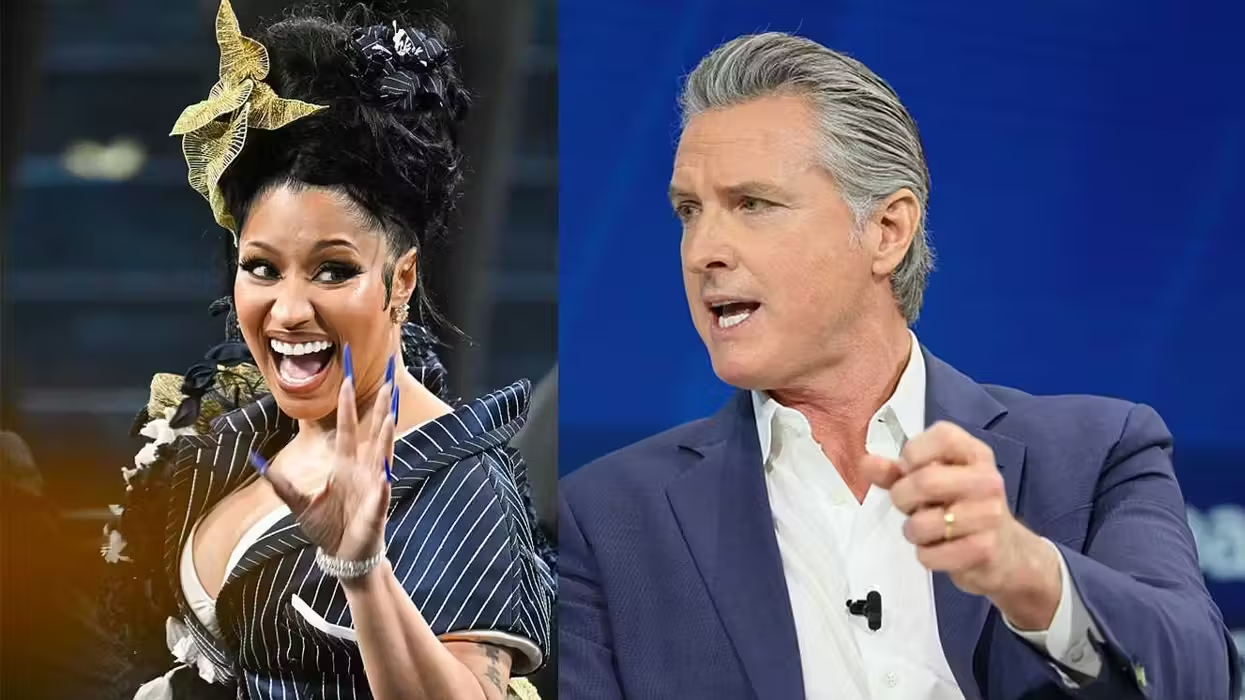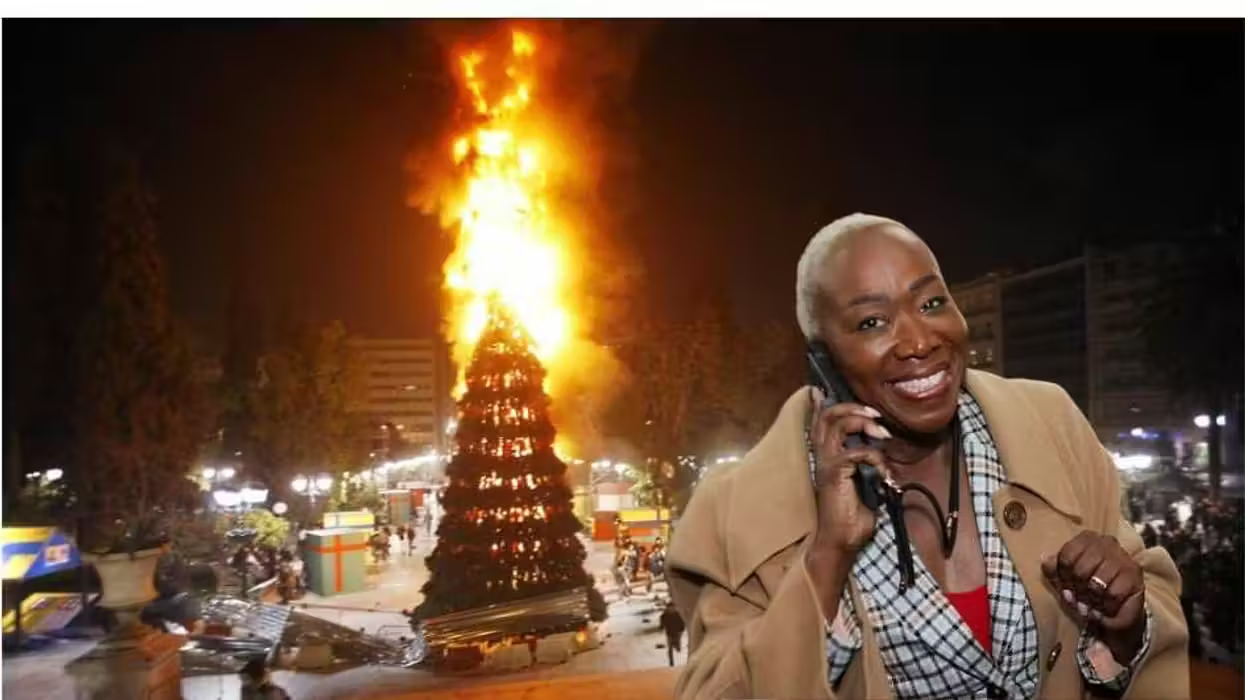
© 2025 Blaze Media LLC. All rights reserved.
So How Did a Hidden Camera Get by Romney Security at a Private Event in the First Place? Former Secret Service Agent Explains
September 18, 2012
"The Secret Service is there only for a physical threat."
With 16 videos uploaded by Mother Jones on YouTube showing Republican presidential candidate Mitt Romney's remarks at a private fundraiser in May, one may wonder how a hidden camera was missed for such a rising, high-profile individual. Wouldn't certain security measures have been taken if Romney were going to make "off the cuff" comments that had the potential to be misconstrued by those seeking to mince his every word?
First, a little background: Today we learned that former President Jimmy Carter's grandson, James Carter IV, facilitated the connection of the person who allegedly filmed the event -- “Anne Onymous” on YouTube -- and Mother Jones writer David Corn, who uploaded the videos Monday. The short clips show a small, grainy Romney with the surroundings indicating it was a formal dinner. The camera appears to be hidden at the bar as a carafe of wine is present in some of the clips and an arrangement that could be a plant is seen as well. It is unknown if it is a cellphone or another type of recording device that captured the footage.

Either way, there are several questions from a security standpoint that arise. Would the Secret Service, which has been provide Romney with protection since February, have detected this device? Is it even their responsibility? What of his staffers -- should they have done a sweep? Was it even mentioned by the Romney campaign staff that taking photos or video from the event was expressly forbidden in the first place?
In short, here's where security experts we interviewed stand on the topic of this latest hidden camera debacle:
- It's not the job of the Secret Services to protect against recording devices.
- If a private security firm were brought in, a certain level of protection extending to unwanted recording would need to be specified by the client.
- Even at private events, with some form of recording equipment embedded in nearly every cellphone, the person who needed protection still needs to watch their words.

Former Secret Service agent of 12 years, Dan Bongino, told TheBlaze it would not have been the responsibility of the agents to prevent such filming from happening or even to prevent a recording device from getting into the event.
"The Secret Service is there only for a physical threat," said Bongino, who is running as a Republican candidate for the U.S. Senate race in Maryland.
Bongino said that everyone would have had to go through a metal detector before entering such an event, but the Secret Service would only be looking for weapons. Cellphones or other devices are passable. He did note a Romney staffer could have been at each checkpoint. If cellphones or recording devices were not allowed, it would have been the staffers' job to collect them during the event.
Bongino said it is a common misconception that the Secret Service is there to protect individuals under their care from dissenters or those making harsh comments. For example, a person would not be thrown out of an event for making critical comments of Romney, but making threats would land them outside the door.
If the device recording the footage was planted ahead of time, not brought in on an attendee or worker, Bongino did say the room would have undergone a sweep for explosive devices. When asked what would happen if a non-explosive device, such a camera, was found, Bongino said it would have been disabled.
Security expert John Sexton, who owns the DC-based firm Sexton Executive Securities, said the level of detail paid to security aside from physical threats all depends on the client. According to Bongino, once the Secret Service stepped in as Romney's security, most private security would be disbanded, unless there was an event larger than what the Secret Service could handle.
Sexton said private security detail is really up to whatever the client wants and can afford.
"My experience over the years has taught me that regardless of status, stature, wealth, the majority of clients tend to overlook this," Sexton said, noting clients focus mainly on physical protection.
Depending on what the client wanted, Sexton said his team could sweep a room making sure it was "sterile" -- free of devices -- and even ensure outside parties serving at the event and attendees were vetted for risks. It all depends on the level of security needed. Sexton noted that with newer technology, some recording devices are harder to spot as they're modeled to look like a wall socket or a fire detector.
Sexton, too, said that once the Secret Service steps in, security firms such as his would usually step out. Although in cases like this, he added -- where security of content may be important -- it wouldn't hurt to have an added firewall.
If attendees and workers were specifically told not to record the event (a fair assumption since the recording was done from a covered, secret position), Sexton said this still can't be trusted. With nearly everyone having some sort of recording device within their reach at all times nowadays, Sexton said "you can't rely on people to be honest."
With that knowledge though, he said a lot of responsibility rests on the shoulders of the person who sought protection in the first place.
"[They] need to watch what they're saying...and not put themselves in that position."
Romney has said that the remarks he was recorded saying were not "elegantly stated," although he still stands by the sentiments of his words.
Related:
- New Secret Romney Vid: Pathway to Peace between Israelis and Palestinians 'Almost Unthinkable' -- But What's the Full Story?
- Romney Revealed: Leaked Footage Shows GOP Candidate Claiming 47 Percent of Americans Will Vote Obama Because They Want Gov't to Take Care of Them
- How Did Jimmy Carter's Grandson Help Leak the Secret Romney Fundraiser Vids?
Want to leave a tip?
We answer to you. Help keep our content free of advertisers and big tech censorship by leaving a tip today.
Want to join the conversation?
Already a subscriber?
more stories
Sign up for the Blaze newsletter
By signing up, you agree to our Privacy Policy and Terms of Use, and agree to receive content that may sometimes include advertisements. You may opt out at any time.
Related Content
© 2025 Blaze Media LLC. All rights reserved.
Get the stories that matter most delivered directly to your inbox.
By signing up, you agree to our Privacy Policy and Terms of Use, and agree to receive content that may sometimes include advertisements. You may opt out at any time.

